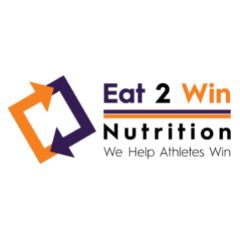Broken: The Dangers of Underfueling for SN 6.0
Sports Nutrition (SN) Symposium 6.0
Monday, January 30 @ 12 pm CT
In this presentation we will discuss the energy, macro and micronutrient requirements for endurance and power athletes. We will then describe the effects of under- fueling as well as the long term risks.
Q&A for Session #1
- For athletes that have GI distress due to IBS- what are some of your nutrition recommendations for them, can you get a little more specific here? What are you recommendations supplement wise? Any Digestive enzymes? Natural Stool softeners? Does it vary case to case.
- If underhydrated wlll cause GI distress. Hydration tools dont always have magnesium so making sure they are supplementing. Taking in enough Fiber not too much making sure 25-35g of fiber. Making sure probiotic containing foods are consumed. Making sure inflammation is in good place by eating 30-45 min post workout.
- If underhydrated wlll cause GI distress. Hydration tools dont always have magnesium so making sure they are supplementing. Taking in enough Fiber not too much making sure 25-35g of fiber. Making sure probiotic containing foods are consumed. Making sure inflammation is in good place by eating 30-45 min post workout.
- You mention labs markers being normal in "self induced starvation". Does that mean if not self imposed, labs might be low?
- Most often whether self induced or unitentional undereating/starving, lab markers will present as normal even if the client/athlete is not taking in enough nutrition. But low albumin can be indicative of low protein stores.
- What about dairy foods for calcium?
- A good option, AS long as not inhibiting iron absorption in an athlete that has iron deficiency.
- What about red meat sources for iron - it is more bioavailable than from plant sources?
- Red meat is indeed a rich source of iron, particularly heme iron, which is more bioavailable to the body than non-heme iron found in plant sources. Heme iron makes up about 40% of the iron in animal tissues and is easily absorbed by the body.
- So what is the best remedies for on field/court cramping? I have used mustard packets, tablespoon of pickle juice, Gatorade, pedialite, etc…
-
Cramping during physical activity is a common issue and there are several remedies that may help alleviate symptoms:
-
Hydration: Staying well hydrated before, during, and after activity can help prevent cramping.
-
Electrolyte replenishment: Consuming sports drinks containing electrolytes such as sodium, potassium, and magnesium can help replenish lost minerals.
-
Mustard: The vinegar in mustard may help stimulate receptors in the mouth, throat, and stomach that help reduce muscle cramps.
-
Pickle juice: The vinegar and salt in pickle juice can help replace lost electrolytes, reducing the risk of cramping.
-
Massage: Gently massaging the cramping muscle can help relieve discomfort.
-
Stretching: Stretching the affected muscle can help relieve cramping.
It's worth noting that cramping can have various causes, and what works for one person may not work for another. It's always a good idea to consult with a healthcare professional to rule out any underlying medical conditions.
-
-
- I have concerns regarding the recommendation regarding separation of iron containing and calcium containing foods (as opposed to supplements) if I was hearing correctly. In my experience, athletes become so obsessed with keeping these foods separate, they end up not eating. I have also seen reviews that suggest that research is not definitive. Please comment...
- Not necessarily Calcium containing foods but more specifically dairy items are recommended to be separated from iron-rich foods when the athlete is facing iron deficiency. If iron deficiency is not a concern this is not a hard and fast rule.
- Do you recommend a daily omega 3 supplement for those who do not eat fish? If so, do you recommend the TG form versus ethyl ester form?
- Yes, if not willing to eat fish.
- What Pre-/Pro- biotic food sources do you find are well accepted by your clients?
- Whole grains, apples, adding chia and hemp seeds, fruits and vegetables, artichokes are the richest source.
- With regard to probiotics - what about probiotic drinks, etc? Aren't these pretty much a supplement? What other probiotics do you recommend?
- The issue is with taking a supplement with one type/ strain - it can be better to get it from more versatile food sources.
- My understanding was having fat within 30 min post exercise can inhibit the storage of glycogen. can you comment on this?
- A small amount of healthy fat does help to shift and turn off cortisol. (Avocados, seeds etc.).
- What causes the post exercise edema?
- Inadequate protein intake overall, protein is not there to pull in the fluid to the blood vessels.
- Should/can coaches discuss weight/weight changes with their athletes? If yes, what advice do you have for these coaches?
- Unless they are trained in how to approach this topic it is not recommended.
- On the slide on GI Distress and underfueling, could bloody stools be a result of this?
- A severe sign - sign of iron loss; black = loss from higher up; should see a doctor.
- Are there specific counseling pointers you give in patients with REDS to help increase uptake?
- See foods as all equal, Moderation, Understanding when disordered views of food started and triggerrs.
- We want to recommend athletes eat what he or she is craving after a workout, although we would want the athlete to be consuming adequate calories and nutrients. What post-workout meal (besides just beans, nuts and seeds alone) do you recommend often to athletes?
- PB and banana; avocado cheese and hummus; cracker cheese pickles; trail mix with raisin, nuts and chocolate; smoothies for less hunger; yogurt granola and berries.
- How do you help younger vegan athletes fuel adequately in a practical and sustainable way (if they are limited by budget, cooking skills, need for variety, time to cook and prepare, limited appetite)?
- Make sure fiber is not inhibiting absorption, make sure timing is optimized - no iron-rich meals right after a workout; small frequent meals; optimize nutrient density over high volumes of food.
- Make sure fiber is not inhibiting absorption, make sure timing is optimized - no iron-rich meals right after a workout; small frequent meals; optimize nutrient density over high volumes of food.
- What should fueling look like if you do, for example: a 1-hour run followed by some weightlifting? Keeping in mind the 30-45 minute window of fueling post-exercise?
- Half bagel with peanut butter, banana, seeds, after 45 min workout -sandwich balanced fats/CHO/ protein- ex. soups with beans and turkey. Always making sure to eat something before, during, and after.
- What type of journaling assignments? Can you point us in a dircection where we can learn more about incorporating journaling into our client care?
- Prompts: Start with 10 things you appreciate about you, What things you thing triggered negative body image?? Other ways you can calm yourself without restricting? Things that they enjoy/appreciate. Reflect on the positives. Based on things that clinet/athlete are saying.
- Are you doing GI mapping clients to assess gut health?
- Not specifically but does refer out to a specialist.
- Speed at which we eat matter?
- Yes, eating rapidly does affect GI health. Encourage athletes to slow down this helps to be mindful and prevent swallowing extra air.
- Do you have thoughts about bradycardia with underfueling? When do you become concerned?
- If bradycardia associated with passing out then electrolytes need to be considered along with caloric intake.



Facebook comments